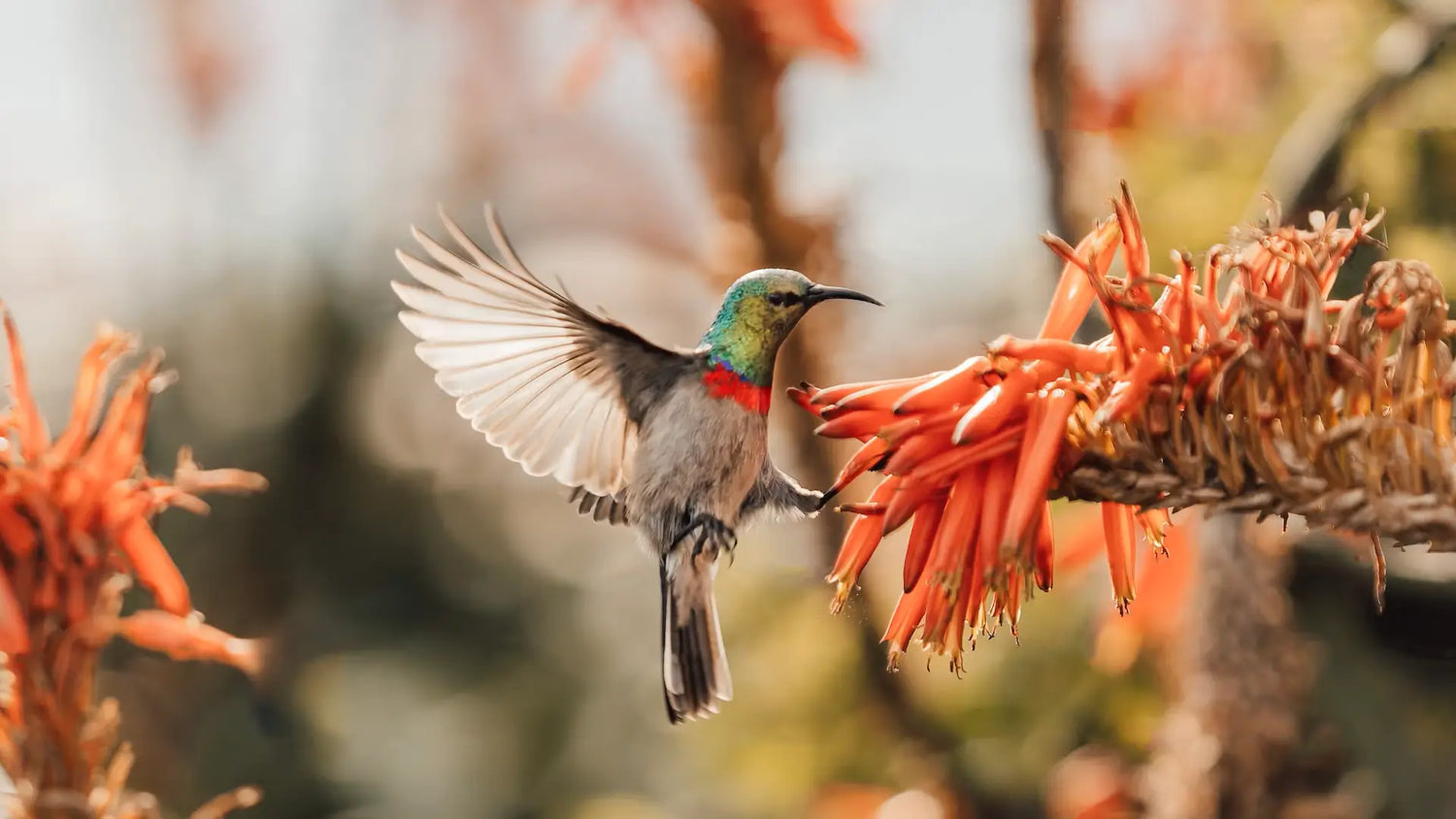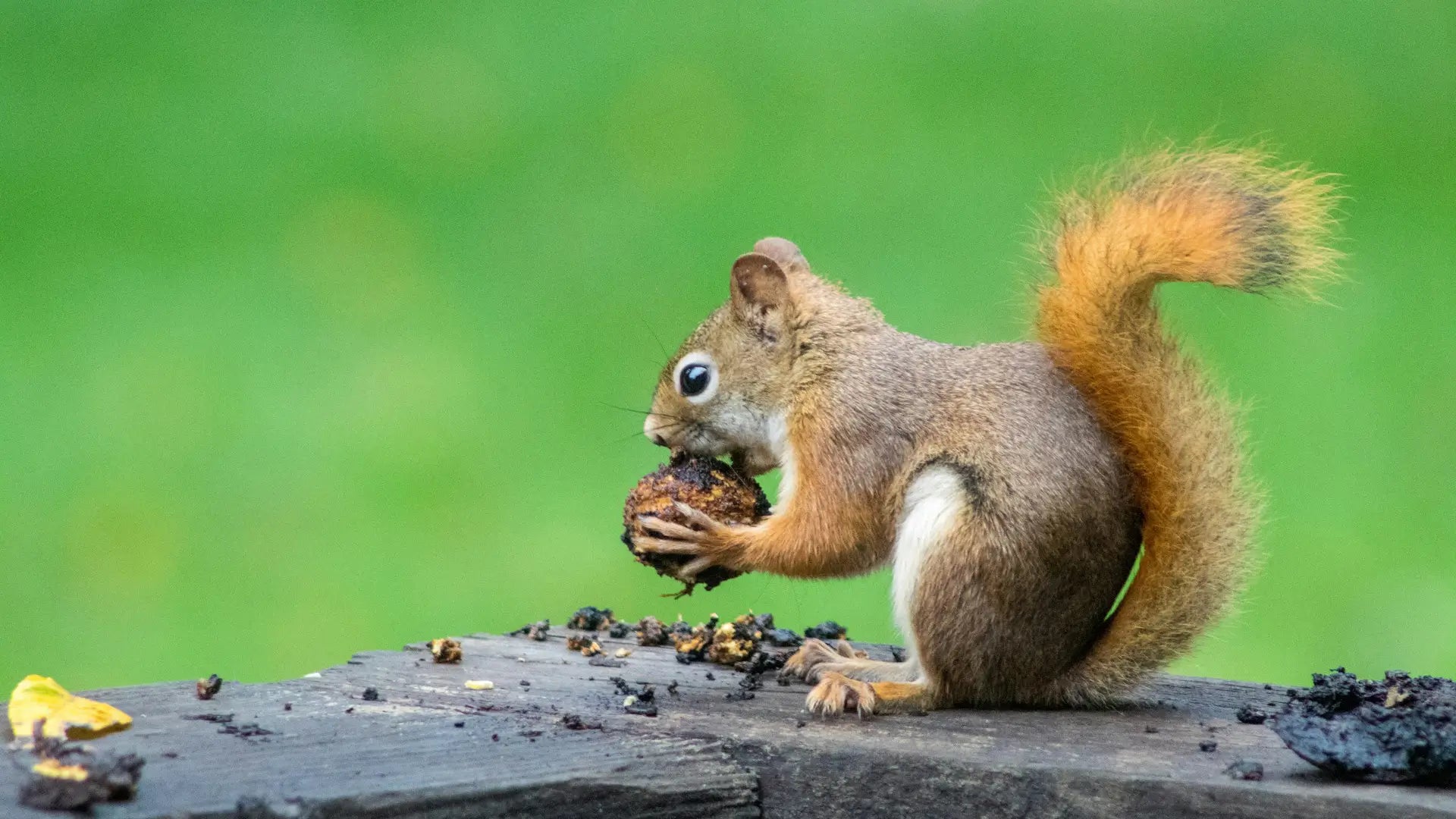Unveiling the Extraordinary Role of Hummingbirds in Nature and How We Can Protect These Gems of the Sky
Hummingbirds, known for their vibrant feathers and agile flight skills, are the micro aerialists of the natural world. They not only bring joy to our daily lives but also play a key role in the ecosystem. This article will comprehensively analyze the habits, ecological value, and how humans can create a safer and more prosperous environment for these gems of the sky through feeding and protection measures.
Hummingbird Habits
Hummingbirds are the masters of flight in the natural world, with their rapid wing vibrations and unique flight skills that allow them to hover and fly backward among flowers. [3] These tiny birds have extremely high metabolism rates, requiring large amounts of food to maintain their energy, leading them to frequently visit flowers for nectar. This dependence on nectar not only supports the survival of hummingbirds but also makes them an indispensable part of the ecosystem.

Ecological Value of Hummingbirds
As efficient pollinators, hummingbirds play a crucial role in the ecosystem. In the process of feeding on nectar, they transfer pollen from flower to flower, promoting plant reproduction and diversity. Moreover, hummingbirds' preferences for specific plants also affect the structure and development of plant communities.

The Migration Journey of Hummingbirds
Hummingbird migration is one of the most spectacular phenomena in nature. They can cross continents, completing journeys of thousands of kilometers. In this process, hummingbirds rely on food sources along the way to replenish their energy. Therefore, providing food and habitats for hummingbirds is crucial for the success of their migration.

Interactions between Humans and Hummingbirds
By setting up hummingbird feeders and planting flowers that attract hummingbirds, people can enjoy observing these beautiful creatures and learn about their behaviors and ecology. This interaction not only enhances people's appreciation of nature but also raises awareness of ecological conservation.

Strategies for Hummingbird Conservation
With environmental changes and habitat loss, hummingbirds face many challenges. Protecting hummingbirds involves preserving their habitats, including maintaining flower-rich gardens and natural areas. Each of us can take action, such as planting native plants, reducing pesticide use, and participating in hummingbird conservation projects, to create a more friendly environment for these micro miracles.

The Future of Hummingbirds and Humans
Looking ahead, a harmonious coexistence between humans and nature is our common goal. Protecting hummingbirds is not only a need for maintaining biodiversity but also a manifestation of our responsibility to the Earth. Through scientific research and public education, we can better understand the ecological value of hummingbirds and work together to protect these gems of the sky, ensuring they continue to soar for future generations.

The mystery and elegance of hummingbirds are truly awe-inspiring. By planting their favorite flowers and using the HummerHi Smart Hummingbird Feeder to provide high-quality food, you can create an ideal habitat for hummingbirds while enjoying the natural beauty they bring.
From Bilantan.com





Leave a comment
All comments are moderated before being published.
This site is protected by hCaptcha and the hCaptcha Privacy Policy and Terms of Service apply.